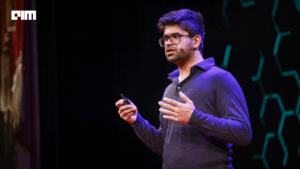New York–based Augmented Intelligence Inc. (AUI) has raised $20 million in a bridge SAFE round at a $750 million valuation cap, bringing its total funding to nearly $60 million. The round was completed in under a week and included eGateway Ventures, New Era Capital Partners, existing shareholders, and other strategic investors.
Founded in 2017 by Ohad Elhelo and Ori Cohen, AUI aims to move beyond the transformer-based large language models that dominate today’s AI landscape. The funding follows a $10 million round in September 2024 at a $350 million valuation, coinciding with AUI’s partnership with Google. “We realize that you can combine the brilliance of LLMs in linguistic capabilities with the guarantees of symbolic AI,” said Elhelo, AUI’s co-founder and CEO
Early investors include Vertex Pharmaceuticals founder Joshua Boger, UKG Chairman Aron Ain, and former IBM President Jim Whitehurst. The company says this latest bridge round paves the way for a larger raise in progress.
Apollo-1 and the Business of Determinism
At the center of AUI’s expansion is Apollo-1, its flagship foundation model for task-oriented dialog designed for enterprise use. Unlike general-purpose systems such as ChatGPT or Gemini, Apollo-1 focuses on structured, rule-based interactions where precision and compliance are critical.
The model uses a neuro-symbolic architecture that merges neural language processing with symbolic reasoning. While the neural layer manages language understanding and generation, the symbolic layer enforces deterministic logic, ensuring that every output follows predefined business rules.
Elhelo said this design draws on data from millions of real-world interactions. “We built a consumer service and recorded millions of human-agent conversations across 60,000 live agents. From that, we abstracted a symbolic language that defines the structure of task-based dialogs.”
Apollo-1 supports standard cloud and hybrid deployments, running efficiently on both GPUs and CPUs without specialized hardware. It’s available via a developer playground that allows enterprises to define operational logic, or as a standard API compatible with existing OpenAI-style interfaces.
AUI claims Apollo-1 offers greater consistency and lower cost compared to traditional transformer models. By encoding rules rather than inferring them, it ensures deterministic responses, a critical factor for regulated industries such as finance, healthcare, and insurance. For example, a travel assistant using Apollo-1 could automatically prevent cancellation of a restricted ticket by applying explicit policy rules, rather than guessing user intent.
The model is domain-agnostic and can be quickly adapted for sectors like retail, logistics, and customer support. Using a shared symbolic language, enterprises can deploy AI agents that maintain context and continuity across multi-step interactions, reducing operational friction and improving reliability.
AUI’s Alternative to the Transformer Model
AUI’s neuro-symbolic system represents a shift from the probabilistic, transformer-based architecture that powers most large language models. Transformers are exceptional at producing natural language but can behave unpredictably. AUI’s approach separates reasoning from generation, creating an AI that executes instructions with verifiable accuracy.
This balance of interpretability and control is driving enterprise interest in deterministic AI — systems that don’t rely solely on statistical inference. AUI’s architecture provides clarity in how decisions are made, offering transparency that transformer-only systems lack.
The company also emphasizes easy integration. Apollo-1 can fit into existing IT frameworks without reconfiguration and works securely across major cloud providers. Enterprises can use it to automate decision-driven workflows while ensuring traceability and compliance.
Elhelo summed up AUI’s vision succinctly: “LLMs are not a good mechanism when you’re looking for certainty. It’s better if you know what you’re going to send to an AI model and always send it — and you know what’s going to come back and how to handle that.”










